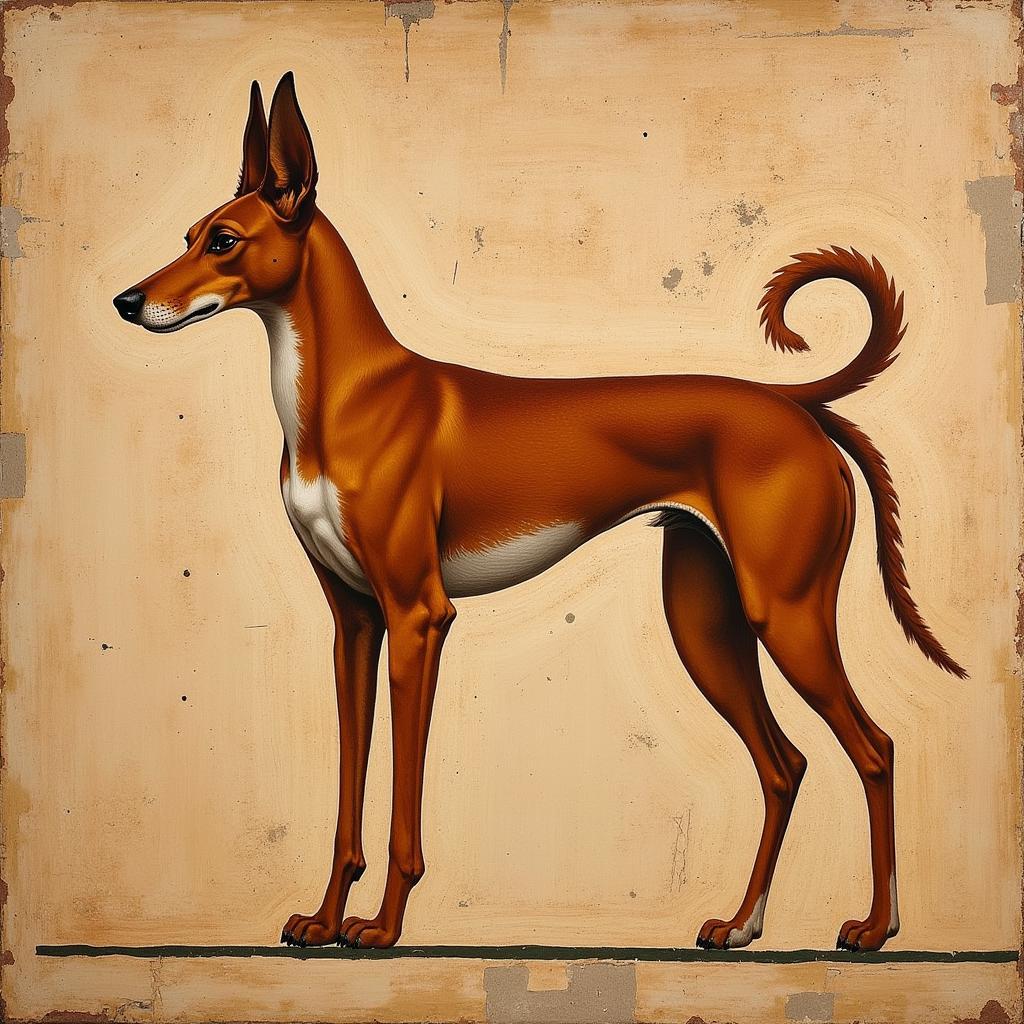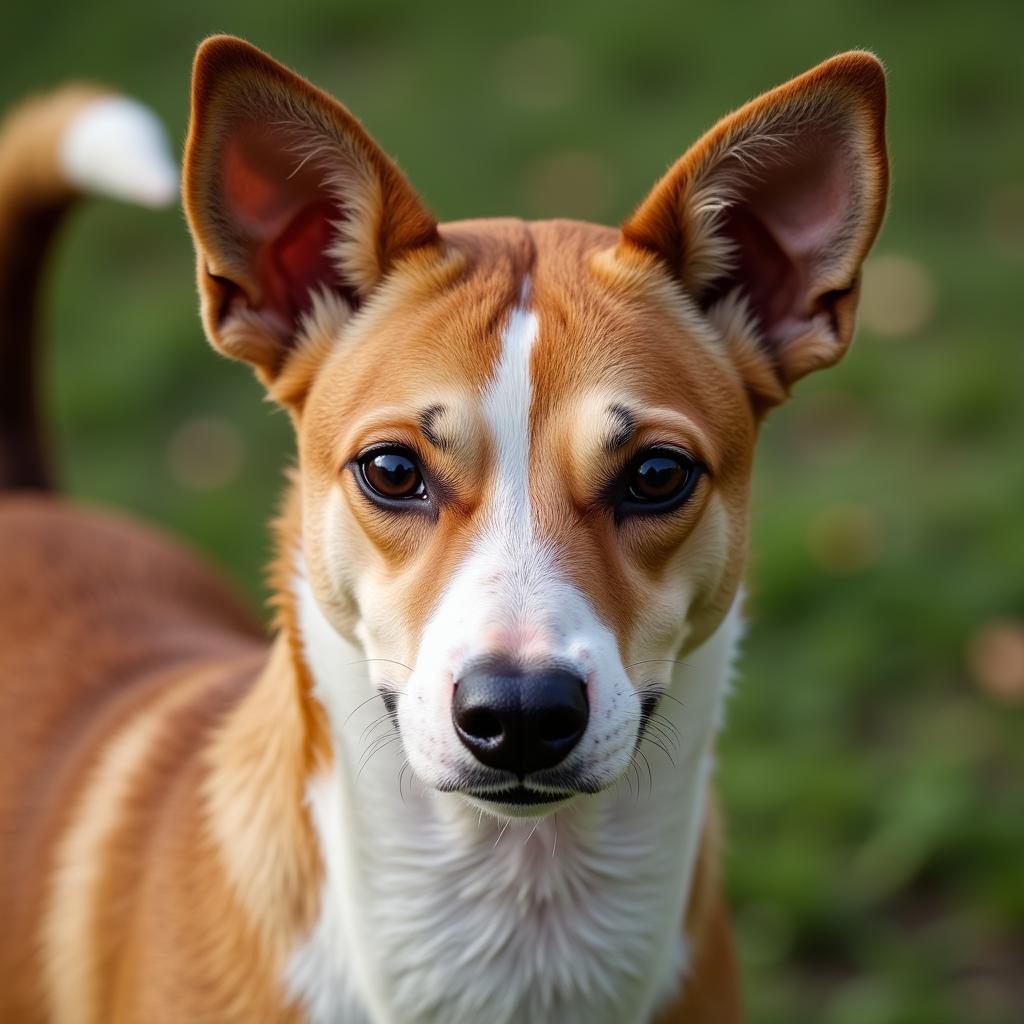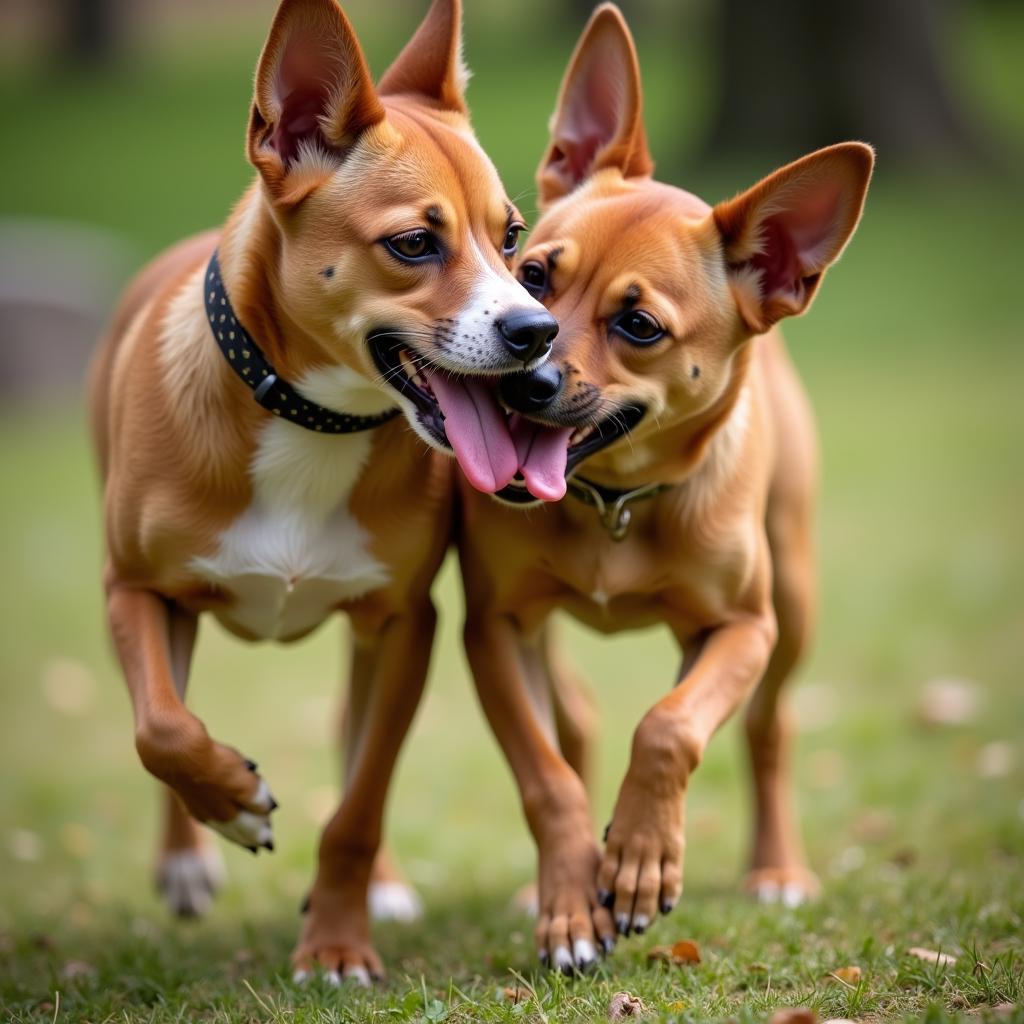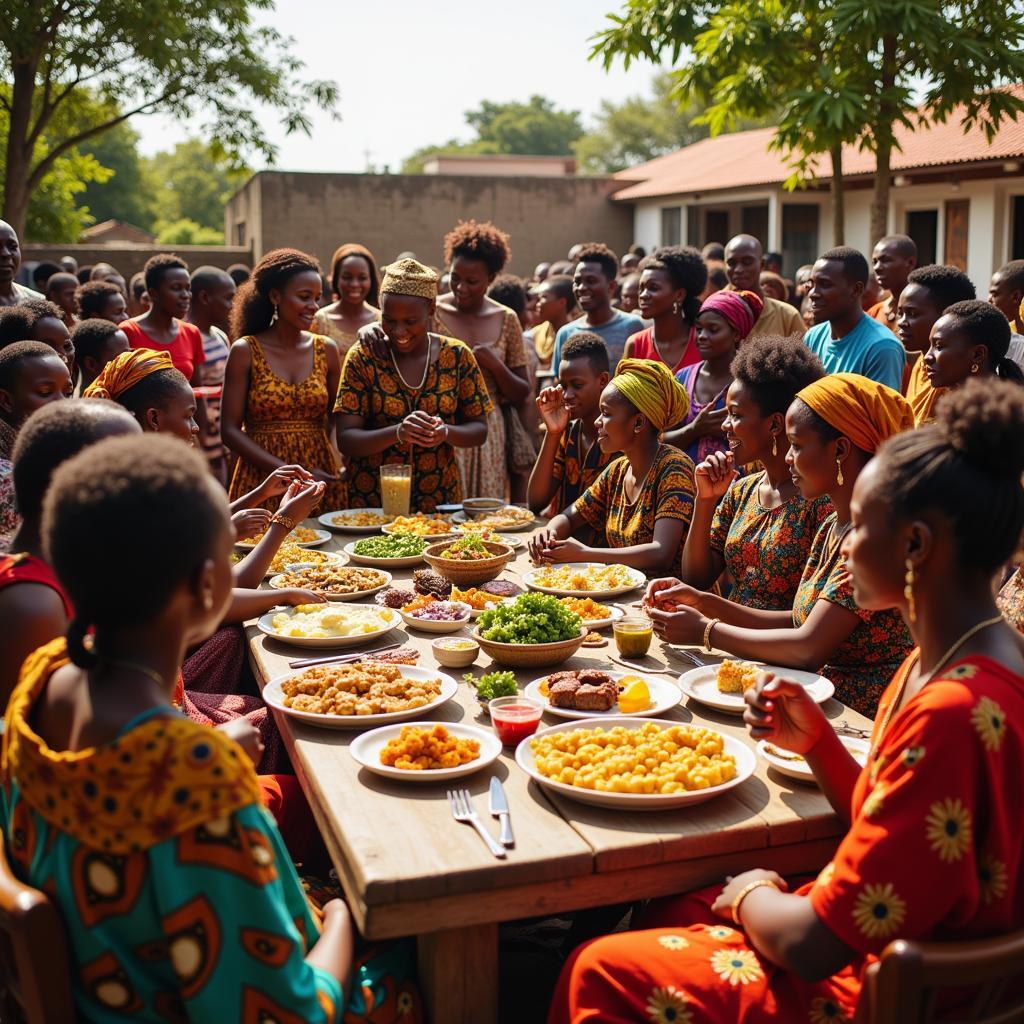Unveiling the African Dwarf Dog: A Comprehensive Guide
The African Dwarf Dog, also known as the Basenji, is a unique and fascinating breed with roots deep in the heart of Africa. These sleek and intelligent dogs are known for their distinctive yodel-like vocalization, their pricked ears, and their tightly curled tail. Let’s delve into the captivating world of these remarkable canines.
A Journey Through History: Origins of the African Dwarf Dog
The Basenji’s history is intertwined with the ancient cultures of Central Africa. These dogs were originally bred by tribes in the Congo Basin, where they were prized for their hunting prowess and their ability to flush small game from dense undergrowth. Evidence of their existence dates back centuries, with depictions found in ancient Egyptian artwork. Their natural hunting instincts and close bond with humans have solidified their place as a cherished companion throughout history. They even served as gifts to pharaohs, cementing their status as a truly special breed. You’ll find the Basenji is not just a dog; it’s a living piece of African history. It’s no wonder people find these dogs so appealing. See more about some cute African animals.
 African Dwarf Dog in Historical Depiction
African Dwarf Dog in Historical Depiction
Distinctive Traits: Appearance and Temperament of the Basenji
The African dwarf dog possesses a unique combination of physical characteristics and personality traits. Their short, fine coat comes in several colors, including red, black, and tri-color. Their wrinkled forehead adds to their expressive face, and their almond-shaped eyes hold an air of intelligence. Known for their independence and intelligence, they are often described as cat-like in their grooming habits. They are also known for their remarkable silence – they do not bark in the traditional sense, but instead emit a unique yodel-like sound. Their aloofness with strangers can be mistaken for shyness, but they form strong bonds with their families and are known for their playful and affectionate nature. What makes the African dwarf dog truly stand out is its unique combination of physical elegance and an engaging, sometimes mischievous, personality.
 African Dwarf Dog Physical Characteristics
African Dwarf Dog Physical Characteristics
Caring for Your African Dwarf Dog: A Practical Guide
The Basenji, much like other African breeds, requires specific care to thrive. Their short coat requires minimal grooming, but regular brushing helps maintain its health and shine. These intelligent dogs need plenty of mental stimulation and physical exercise to prevent boredom and destructive behaviors. Think puzzle toys, agility courses, and long walks. Their independent nature makes early socialization and consistent training crucial. A well-socialized Basenji is more likely to be confident and well-adjusted around new people and other animals. Understanding their unique needs will help you build a strong bond with your Basenji and ensure they live a long, happy, and healthy life. The African Barbel also offers a fascinating look into African wildlife.
A Look at African Astronomy and Other Aspects of African Culture
From the vast savannas to the ancient civilizations, Africa is a continent rich in culture and tradition. It’s fascinating to explore the various facets of African Life, from its diverse wildlife to the celestial observations of its people. Understanding the cultural context of the Basenji’s origins helps appreciate this unique breed even more. For instance, did you know that ancient African civilizations made significant contributions to the field of astronomy? Learning about their observations and beliefs adds another layer of depth to the story of the African dwarf dog. Similarly, understanding the role of the African Bush Elephant in its ecosystem provides a compelling perspective on the dynamic relationship between African Bush Elephant vs Lion.
 African Dwarf Dog Playing with Owner
African Dwarf Dog Playing with Owner
Conclusion: Embracing the Spirit of the African Dwarf Dog
The African dwarf dog, with its rich history, distinctive characteristics, and unique personality, offers a truly special companionship. By understanding their needs and appreciating their unique qualities, you can embark on a rewarding journey with this remarkable breed. Owning an African dwarf dog is not just about having a pet; it’s about embracing a piece of African heritage.
FAQ
- Are African Dwarf Dogs good with children? With proper socialization, they can be.
- Do African Dwarf Dogs bark? No, they yodel.
- How much exercise does a Basenji need? They need a significant amount of daily exercise.
- Are Basenjis difficult to train? Their independence can make training challenging but rewarding.
- What health problems are common in Basenjis? Fanconi syndrome and progressive retinal atrophy are potential concerns.
- What is the lifespan of an African Dwarf Dog? Typically 12-16 years.
- Are Basenjis good apartment dogs? They can adapt to apartment living with sufficient exercise.
If you need further assistance, please contact us at Phone Number: +255768904061, Email: [email protected], or visit our address: Mbarali DC Mawindi, Kangaga, Tanzania. Our customer service team is available 24/7.


